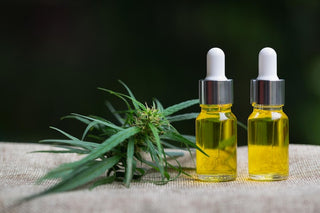Feeling a bit lost trying to navigate the world of hemp-based products? Are you asking yourself, Is hemp oil the same as CBD oil? You're not alone, and understanding the difference between hemp oil and CBD oil is crucial for your wellness journey. At Innovative CBD, we believe in providing clear, trustworthy information to empower your choices and help you find exactly what you need.
What’s the Difference Between Hemp Oil and CBD Oil?
While both oils come from the Cannabis sativa plant, they’re derived from different parts and have different uses.
| Aspect | Hemp Oil | CBD Oil |
|---|---|---|
| Source | Extracted from hemp seeds | Extracted from hemp plant flowers, leaves, and stalks |
| CBD Content | Contains little to no CBD | Rich in cannabidiol (CBD) |
| Primary Use | Nutritional supplement, cooking oil, skin products | Used for general wellness and balance |
| Legal Status (USA) | Legal in all 50 states | Legal if derived from hemp (<0.3% THC), varies by state |
| Regulatory Oversight | Regarded as a food supplement | Subject to more scrutiny under the 2018 Farm Bill |
Why the Confusion?
The confusion largely stems from marketing. Some companies use terms like hemp extract, cannabis sativa oil, or cannabidiol oil inconsistently. However, it’s essential to read product labels and understand what you’re actually buying.
-
Hemp seed oil: Nutrient-rich oil cold-pressed from hemp seeds.
- CBD oil: Oil containing cannabidiol, typically blended with a carrier oil like MCT or hemp seed oil.

Understanding Hemp and CBD in the USA
Under the 2018 Farm Bill, hemp-derived products containing less than 0.3% THC are federally legal in the U.S. However, individual state laws may vary, especially when it comes to CBD-infused food and beverages.
According to Grand View Research, the U.S. hemp-derived CBD market was valued at over $6 billion in 2023, with projections exceeding $7.5 billion by 2026.
Types of CBD Oils You Might See
| Type | Contains THC | Other Cannabinoids | Typical Use |
|---|---|---|---|
| Full-spectrum | Yes (<0.3%) | Yes | Whole plant wellness |
| Broad-spectrum | No | Yes | THC-free with entourage effect |
| Isolate | No | No | Pure CBD for focused use |
Note: Always choose products with third-party lab testing to confirm cannabinoid content and safety.
Tips for Buying the Right Product
-
Check the label: Look for terms like "CBD", "cannabidiol", or "full-spectrum hemp extract."
-
Look for lab testing: Ensure the product is third-party tested and includes a certificate of analysis (COA).
- Know your goals: Use hemp seed oil for nutrition, and CBD oil for general balance and lifestyle support.
Make an Informed Choice With Innovative CBD
While hemp oil and CBD oil come from the same plant, they’re distinctly different in terms of source, composition, and intended use. Being an informed consumer means reading labels carefully and understanding what each oil offers for your wellness journey.
Ready to enhance your wellness journey? Explore our diverse range of oil-based solutions tailored to your lifestyle. Discover daily balance with our Professional CBD+CBDA Full Spectrum Oil, experience the synergistic benefits of our Professional 2:1 CBD x THC Tincture, or find support with our CBD Broad Spectrum THC-Free CBD Oil.
Visit our Innovative CBD shop to find the perfect product to elevate your routine today!
Frequently Asked Questions
Is CBD legal in all US states?
CBD derived from hemp with less than 0.3% THC is federally legal, but state laws vary. Always check local regulations.
What is the difference between full-spectrum and isolate CBD?
Full-spectrum CBD contains multiple cannabinoids (including trace THC), while isolate contains only pure CBD.
Can I travel with CBD across state lines?
Yes, as long as the CBD product complies with federal regulations and the laws of the destination state.
How do I know if a CBD product is third-party tested?
Reputable brands provide lab results (COAs) on their websites or packaging that show cannabinoid content and purity.
Will CBD get me high?
No. CBD is non-intoxicating. Unlike THC, it won’t cause a “high” feeling.
Disclaimer: The statements made on this blog have not been evaluated by the U.S. Food and Drug Administration (FDA). Our products are not intended to diagnose, treat, cure, or prevent any disease. The information provided on this website is not a substitute for individual medical advice.


